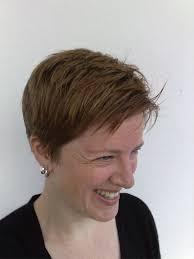Here’s a video of the presentation by Anna Walker at the Trans States 2 Conference, When Things Fall Apart and the Centre Cannot Hold. The YouTube page it resides on states:
When Things Fall Apart and the Centre Cannot Hold How do we navigate this time of chaos and where do we turn for succour? As W.B. Yeats writes in ‘The Second Coming‘, when ‘Things fall apart, the centre cannot hold’, ‘Surely the second coming is at hand.’ In Staying with the Trouble, Making Kin in the Chthulucene (2016), Donna Haraway suggests that in the midst of spiralling ecological disaster, and the ensuing suffering we need to find new ways to reconfigure our relationship to the earth and each other. Through ‘SF‘—strong figures, science fiction, speculative feminism, speculative fabulation— she formulates ways to stay with the trouble of living and dying together on a damaged earth, where ‘[b]ecoming-with, not becoming is the name of the game’ (p.12). Likewise, Catherine Malabou reformulates the Freudian notion of plasticity as ‘a new kind of exposure of the nervous system to danger and, consequently, a new definition of what ‘event,’ ‘suffering,’ and ‘wound’ mean” (2013, p. 28). For Malabou, becoming is a radical metamorphosis, the fabrication of a new form, person or a way of being in the world. The Tower denotes disruption, change and catastrophe. It is the card I most fear appearing in a spread, but over the years I have learned to receive its presence as a harbinger of transformation albeit one with resistance. For this presentation I will explore falling as a necessary step towards change, negotiate the centre when reframing a traumatic past and consider the second coming as a state of renewal and rebirth.
Anna Walker, PhD is an artist, writer and researcher working in multi- media, primarily sound and moving imagery. She was awarded an MA in Fine Art from Southampton University in 1998, and a certificate in Psychotherapy from CBPC, Cambridge, in 2010. An interest in the effects of trauma on the body, developed during her work as a psychotherapist, led her to a PhD in Arts and Media at Plymouth University, which she completed in May 2017. Her arts-practice balances the auto-ethnographic with the critical, utilising personal experiences to facilitate a greater understanding of memory, trauma and its wider cultural implications. She has been exploring trauma in her work for many years, how the body responds to overwhelming traumatic and stressful situations and how it reorganises itself to cope with or manage the trauma. Most recently research has focused on intergenerational trauma, i.e. what gets passed down from generation to generation. For example, the moving Image work: ‘Breathe Wind Into Me, Chapter 1’ (2018-2019), exhibited as part of Making Space at Fabrica Gallery, Brighton, is a loosely, flowing, stream of consciousness that questions what arises physically and philosophically when life is stripped back to the bare essentials. Without a home, without land, what can we rely on to locate ourselves in space and time. It is a response to the overwhelming chaos that daily encroaches upon our lives through current societal and political upheavals, technology, the media etc. and asks what are the consequences when the breath is interrupted with trauma, anxiety or stress? The work is also an examination of the yearning for the motherland using the breath as a way to research migration, identity, loss and memory. She is a contributing researcher of Transtechnology Research at Plymouth University.


